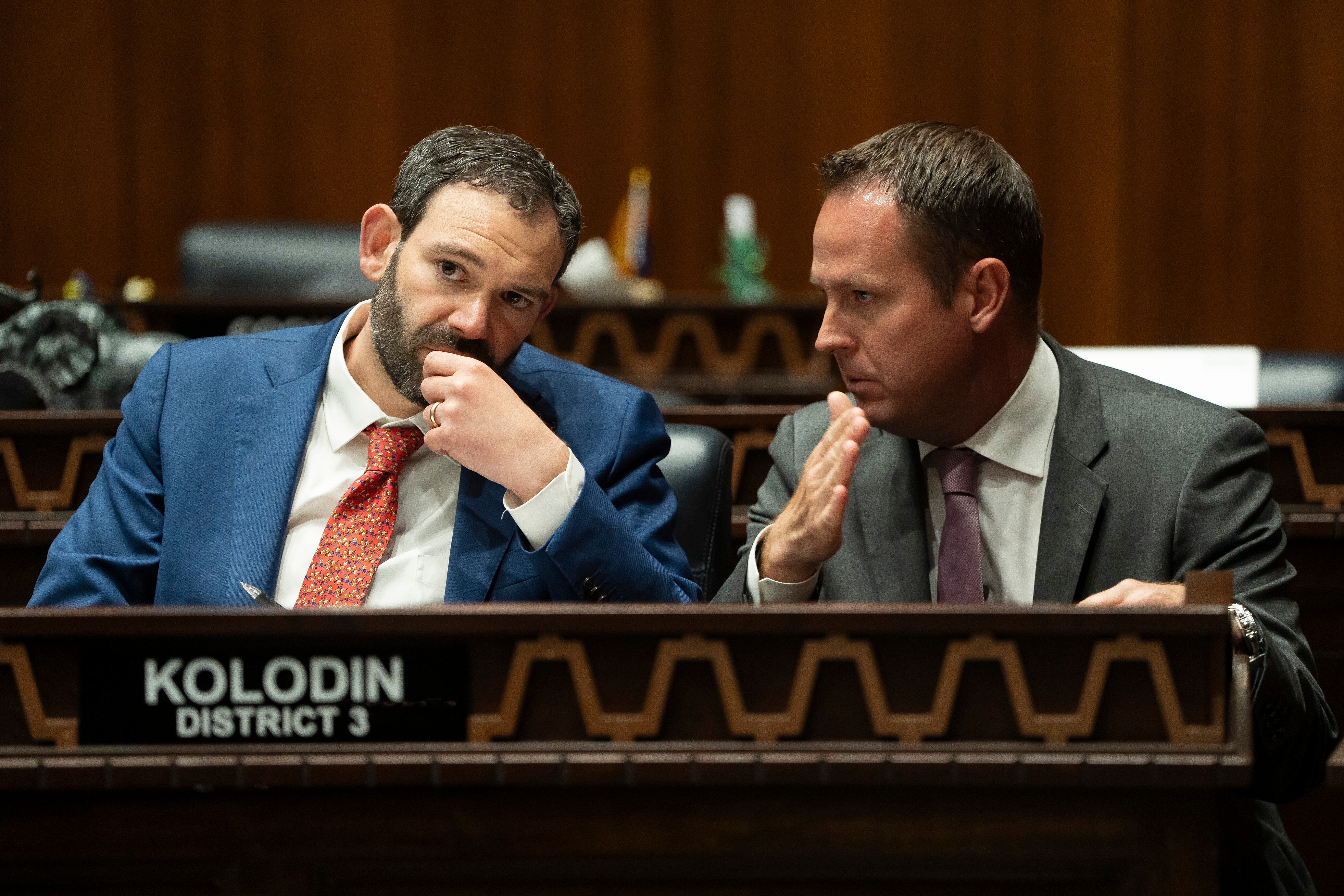Votebeat is a nonprofit news organization reporting on voting access and election administration across the U.S. Sign up for Votebeat Arizona’s free newsletter here.
Republicans in the Arizona House have created a new committee that will take a comprehensive look at how the state’s elections are run, another sign that the state’s debate over election policy didn’t end with the 2024 election.
GOP state Rep. Alex Kolodin will lead a panel called the House Ad Hoc Committee on Election Integrity and Florida-Style Voting Systems, according to an announcement Thursday, ahead of the Monday start of the new legislative session. Republicans have been saying for months that they want the state’s elections to be run more like Florida’s.
Kolodin said he believes that means quicker election results, cleaner voter rolls, and better security for mail-in ballots. But it’s already clear that not everyone will agree on the changes, or that such changes would make the state’s elections better.
Kolodin likes how Florida limits most mail ballot drop-offs on Election Day, for example, which is the main way the Sunshine State gets faster results. And he said he likes how Florida requires mail voters to provide an identification number. Democratic lawmakers and voting rights groups have not supported these proposals in the past.
“Those are bad ideas,” Alex Gulotta, Arizona director of the voting rights group All Voting is Local, said Thursday after hearing Kolodin’s initial ideas. “We don’t support any proposals to reduce voter access, and that’s what these do.”
Gov. Katie Hobbs, a Democrat, has signaled she will not sign any legislation that she believes will limit voting access. For that reason, Kolodin said, any final proposal from the committee will also come not just as a bill but also as a ballot proposition that would bypass Hobbs and go straight to voters.
Two other Republican representatives — Rachel Keshel and John Gillette — will serve on the committee, alongside Democrats Lydia Hernandez and Betty Villegas. The committee will work separately from a standing committee that hears election bills.
Speeding up election results will be one focus, and it’s also a priority in the Senate. Two related bills introduced there, SB1001 and SB1011, would limit how, when, or where voters can drop off mail ballots.
Kolodin said he believes there is wide, bipartisan support for speeding up results, but a recent survey by Progress Arizona found that most respondents support Arizona policies that allow voters to drop off their mail ballots at polling places on Election Day, without having to wait in line. That policy leads to delays in results, because officials then have to verify the voters’ signatures on the late-arriving ballot envelopes before the ballots can be counted.
Kolodin said he hopes the ad hoc committee will provide a space for detailed policy discussion on how to improve elections. Asked if it would also be a forum for proponents of conspiracy theories about elections, Kolodin said he is hoping it is a “really technically focused committee.”
“If you’re looking for a good show, this is not going to be a committee for a good show,” he said.
Jen Fifield is a reporter for Votebeat based in Arizona. Contact Jen at jfifield@votebeat.org.




